Premium Only Content
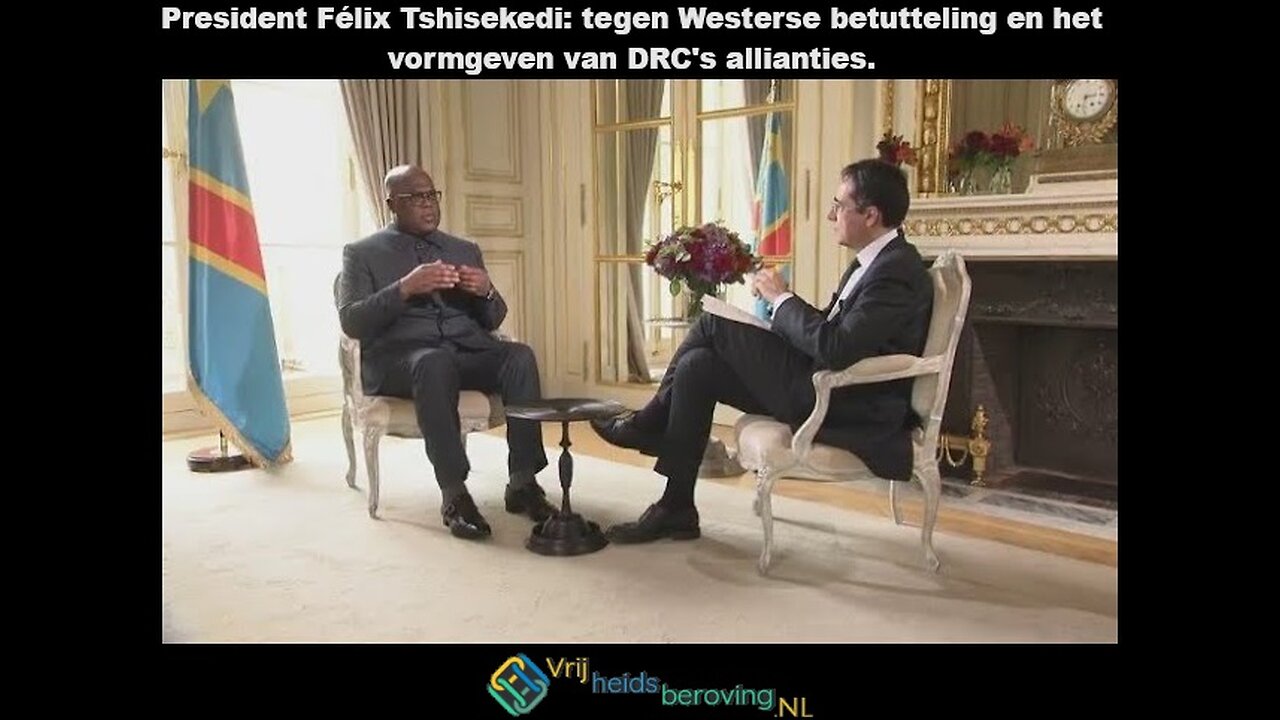
President Félix Tshisekedi: tegen Westerse betutteling en het vormgeven van DRC's allianties.
== English below==
https://vrijheidsberoving.nl/president-felix-tshisekedi-tegen-westerse-betutteling-en-het-vormgeven-van-drc-s-allianties/
In een interview met LCI verdedigde president Félix Tshisekedi het recht van de DRC om zijn bondgenoten te kiezen, bekritiseerde hij het westerse paternalisme en benadrukte hij de exploitatie van Congolese mineralen door multinationals zoals Apple. Tijd voor wederzijds respect en echte partnerships!
Parijs, 4 mei 2024 - Tijdens zijn verblijf in Frankrijk heeft president Félix Tshisekedi van de Democratische Republiek Congo (DRC) een interview gegeven aan journalist Darius Rochebin voor de televisiezender LCI. Deze toespraak, gekenmerkt door openhartige en directe uitwisselingen, stelde de Congolese president in staat om de Europese publieke opinie, met name de Franse, toe te spreken over cruciale onderwerpen met betrekking tot internationale betrekkingen en dynamiek in Afrika.
Betrekkingen met Rusland en China.
Gevraagd naar de betrekkingen tussen de DRC en Rusland, ondanks de internationale veroordeling van de invasie van Oekraïne, verdedigde Tshisekedi het recht van zijn land om zijn bondgenoten te kiezen.
"We hebben het recht om de vrienden te hebben die we willen", zei hij, en benadrukte dat Afrikanen niet anders moeten worden beoordeeld dan andere landen die betrekkingen onderhouden met controversiële landen.
"De Russen willen vriendschap met Afrika en met de DRC.
Waarom zou je het weigeren?"
Wat de vooruitgang van Wagner in Afrika betreft, bagatelliseerde Tshisekedi de bezorgdheid en zei dat deze aanwezigheid geen realiteit was in de DRC.
Hij erkende echter de dreiging die van Rwanda uitgaat en noemde het een dringender probleem voor zijn land dan Wagner.
Wat betreft de kwestie van de concurrerende invloeden in Afrika, tussen China, Rusland en de islamisten, onderscheidde Tshisekedi de eersten duidelijk als legitieme partners:
"China en Rusland komen door de voordeur, zij zijn partners met wie we kunnen samenwerken."
Percepties van democratie en mensenrechten.
In antwoord op vragen over autoritaire regimes in China en Rusland stelde Tshisekedi een provocerende vraag: "Wat is democratie?"
Hij deelde zijn ervaring in China, waar hij burgers ontmoette die blij waren met hun systeem.
"Wie ben ik om dit systeem te veroordelen en te zeggen dat het ongelukkig is?" vroeg hij, terwijl hij kritiek uitte op de vermeende arrogantie van westerse landen die hun normen aan anderen opleggen.
De westelijke paternalistische en minerale hulpbronnen.
De Congolese president bekritiseerde het westerse paternalisme, met name in de context van de mensenrechten. "Er is altijd die neerbuigende blik op Afrika en Afrikanen," zei hij.
Hij illustreerde deze houding door te verwijzen naar de oorlog die de DRC is opgelegd voor de plundering van zijn mineralen, essentiële hulpbronnen voor westerse multinationals zoals Apple.
Ingaand op de specifieke beschuldigingen tegen Apple, zei Tshisekedi: "In de iPhone die we hebben, zit bloed van Congolese slachtoffers."
Hij drong erop aan dat deze beweringen worden gedocumenteerd en dat lopende onderzoeken de waarheid zullen onthullen over de oorsprong van de gebruikte mineralen.
Conclusie
Het interview met president Tshisekedi belichtte perspectieven die vaak ondervertegenwoordigd zijn in de westerse media.
Door de soevereiniteit en de rechten van de DRC op het internationale toneel krachtig te verdedigen, herinnerde hij het Westen ook aan de noodzaak om zijn aanpak en betrekkingen met Afrika te heroverwegen.
Tshisekedi's positie weerspiegelt de wens om de internationale betrekkingen opnieuw in evenwicht te brengen om partnerschappen op te bouwen op basis van wederzijds respect en begrip voor de lokale realiteit.
=== English ===
President Félix Tshisekedi: against Western patronizing and shaping DRC's alliances.
By Congo History, 4.22K subscribers, 145,201 views, May 9, 2024
Paris, May 4, 2024 - During his stay in France, President Félix Tshisekedi of the Democratic Republic of Congo (DRC) gave an interview to journalist Darius Rochebin for the television channel LCI.
This address, marked by candid and direct exchanges, allowed the Congolese president to speak to the European public, particularly the French, on crucial issues concerning international relations and dynamics in Africa.
Relations with Russia and China
Asked about the relations between the DRC and Russia, despite the international condemnation of the invasion of Ukraine, Tshisekedi defended his country's right to choose its allies. "We have the right to have the friends we want," he said, emphasizing that Africans should not be judged differently from other countries that maintain relations with controversial nations. "The Russians want friendship with Africa and with the DRC. Why refuse it?"
Regarding the advancement of Wagner in Africa, Tshisekedi downplayed concerns, stating that this presence was not a reality in the DRC. However, he acknowledged the threat posed by Rwanda, calling it a more pressing problem for his country than Wagner.
On the issue of competing influences in Africa between China, Russia, and the Islamists, Tshisekedi clearly distinguished the former as legitimate partners: "China and Russia come through the front door, they are partners we can work with."
Perceptions of Democracy and Human Rights
In response to questions about authoritarian regimes in China and Russia, Tshisekedi posed a provocative question: "What is democracy?" He shared his experience in China, where he met citizens who were happy with their system. "Who am I to judge this system and say that it is unfortunate?" he asked, while criticizing the perceived arrogance of Western countries imposing their standards on others.
Western Paternalism and Mineral Resources
The Congolese president criticized Western paternalism, particularly in the context of human rights. "There is always this condescending look towards Africa and Africans," he said. He illustrated this attitude by referring to the war imposed on the DRC for the looting of its minerals, essential resources for Western multinationals like Apple.
Addressing specific accusations against Apple, Tshisekedi said: "In the iPhone we possess, there is the blood of Congolese victims." He insisted that these claims are documented and that ongoing investigations will reveal the truth about the origin of the minerals used.
Conclusion.
President Tshisekedi's interview highlighted perspectives often underrepresented in Western media.
By firmly defending the sovereignty and rights of the DRC on the international stage, he also reminded the West of the need to reconsider its approaches and relations with Africa.
Tshisekedi's position reflects a desire to rebalance international relations to build partnerships based on mutual respect and understanding of local realities.
-
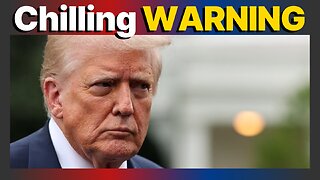 29:00
29:00
DeVory Darkins
15 hours ago $13.78 earnedTrump smacks Russia with CHILLING WARNING Cincinnati officials EXPLODE over viral fight
42.3K91 -
 1:12:40
1:12:40
Omar Elattar
17 hours ago71 Mins With A Hollywood Comedian & Dating Expert: #1 Reason Men Can't Find "The One" (4,000 Study)
3.26K1 -
 LIVE
LIVE
BBQPenguin_
5 hours agoTasking & PVP! ALL DAY!
59 watching -
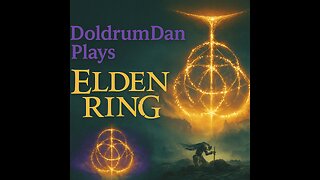 LIVE
LIVE
DoldrumDan
5 hours agoNEW PC TEST #2 NIGHTREIGN INTO FIRST TIME SEEING ELDEN RING IN HD
63 watching -
 18:02
18:02
James Klüg
2 days agoConfronting Unhinged Protesters At Musk's Tesla Diner + Food Review!
33.9K31 -
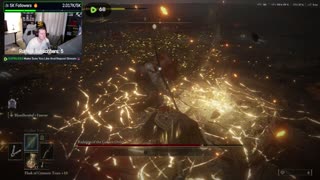 LIVE
LIVE
EXPBLESS
3 hours agoLeveling Up In Elden Ring | #RumbleGaming |
64 watching -
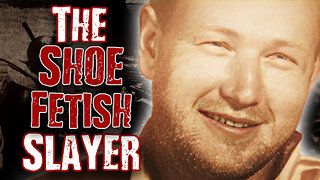 26:53
26:53
Scary Mysteries
1 day agoThe Shoe Fetish Slayer: Jerry Brudos
70.5K7 -
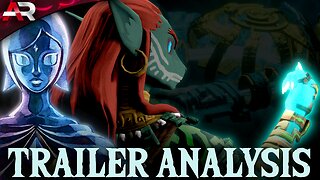 15:17
15:17
AndresRestart
23 hours ago $2.02 earnedVERY COOL Zelda Secrets Found In This Age Of Imprisonment Trailer!
30.5K1 -
 16:02
16:02
RTT: Guns & Gear
1 day ago $3.95 earnedIs The Ramblin Man The Quietest .46 Cal Suppressor? Resilient Suppressors
32.5K5 -
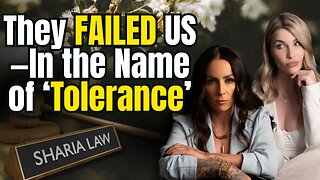 1:03:12
1:03:12
The Quiet Part
5 days agoMuslim Values Are Canadian?” Canada's DARK SECRET: Two-Tier Justice & the Rise of Sharia Law
31.8K98